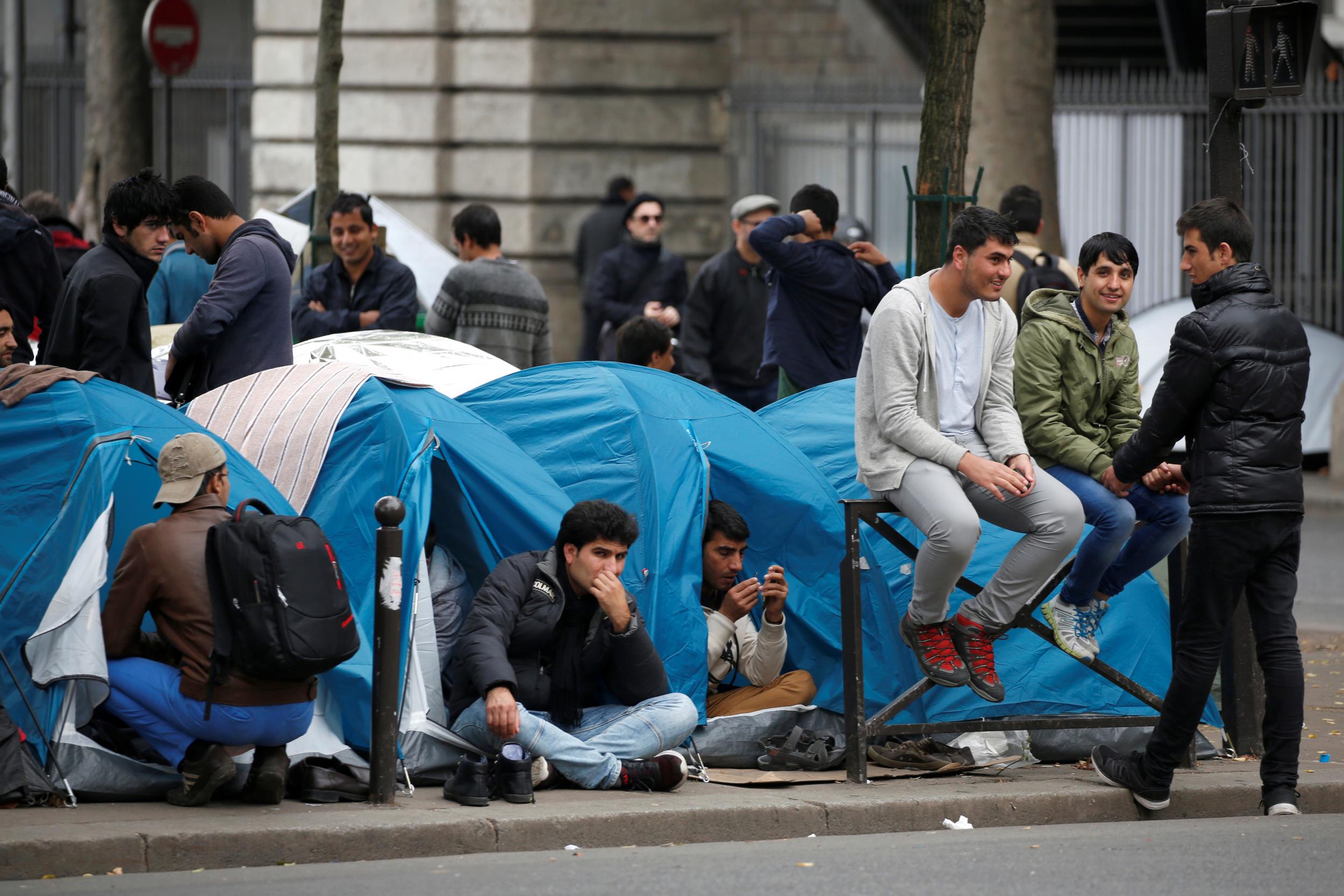French government offers refugees and migrants €2,500 to 'voluntarily' deport themselves
'Simply offering a sum of money will not convince people to go back. It’s futile,' says refugee charity worker

Your support helps us to tell the story
From reproductive rights to climate change to Big Tech, The Independent is on the ground when the story is developing. Whether it's investigating the financials of Elon Musk's pro-Trump PAC or producing our latest documentary, 'The A Word', which shines a light on the American women fighting for reproductive rights, we know how important it is to parse out the facts from the messaging.
At such a critical moment in US history, we need reporters on the ground. Your donation allows us to keep sending journalists to speak to both sides of the story.
The Independent is trusted by Americans across the entire political spectrum. And unlike many other quality news outlets, we choose not to lock Americans out of our reporting and analysis with paywalls. We believe quality journalism should be available to everyone, paid for by those who can afford it.
Your support makes all the difference.The French government is offering €2,500 to refugees who “voluntarily” leave and return to their own countries if they do so before the end of the year.
The Office for Immigration and Integration in France (OFII) has presented the offer as "a form of compensation” for refugees and migrants who have made the journey to Europe, saying they are eligible for the payment if they leave the country before 31 December.
The offer, branded as an "incentive" by immigration officials, reportedly comes with a series of added benefits including a paid-for air fare and the opportunity for some refugees to be granted up to €10,000 of financial aid in setting up employment when they return.
Didier Leschi, general director of OFII, told French TV channel BFM: “This measure will help people who express a need or desire to go back to the countries they came from. Between 4,000 and 4,500 or 4,700 people have benefited from this initiative in the past.
“It’s a system that allows people to establish stability in the country they came from, while also encouraging them not to return. These people have invested money into getting to Europe, so this is an incentive for them to return - it's like a form of compensation.”
It comes a month after the demolition of the ‘Jungle’ camp in Calais, which saw thousands of refugees who had been living in the slum dispersed in temporary reception centres across France.
While the operation was described by the French government as a "success", there has since been a rise in refugees and migrants sleeping rough across France, particularly in Paris and Calais, as they either wait for the slow process of seeking asylum in France or plan to try reach the UK.
When Mr Leschi was asked why such “enormous sums” were being offered to refugees drawn from state funds, he said it worked out cheaper than carrying out "forced" deportations, saying: “A forced deportation is far more expensive for taxpayers and the state.
“They need to go before the administrative judge, then the freedom judge, then they usually need to be accompanied by three police officers, which means paying for three plane tickets, plus their own.”
OFII originally introduced an “aid package” in October to facilitate the return of foreign nationals - who they describe as being in an “irregular” situation - to their original countries. The sum started at €350, but has since increased to €650, then €1,850 and now the most recent sum of €2,500 if they leave before then end of 2016.
Refugee charities have said they believe the initiative will do little to solve the problem of growing numbers of refugees sleeping on the streets, saying few will be encouraged by sums of money to return to the "desparate" situations they left in their own countries.
Clare Millot, general secretary for SALAM, a charity helping refugees in Calais, said the incentive would do little to persuade refugees to return to the difficult lives they’ve left behind. She told The Independent: “Most refugees left their countries because they were in a desperate situation in their country – wars, dictatorships, misery.
“They got in boats that were likely to sink in attempt to cross the Mediterranean. We all know what’s been happening. Occasionally you got Iraqis and Afghans who do want to go home and so a sum of money might encourage them to leave, but it’s such a small proportion – not even one in a thousand.
“Simply offering a sum of money – and it’s not even a huge sum – will not convince people to go back. It’s futile.”
Join our commenting forum
Join thought-provoking conversations, follow other Independent readers and see their replies
Comments